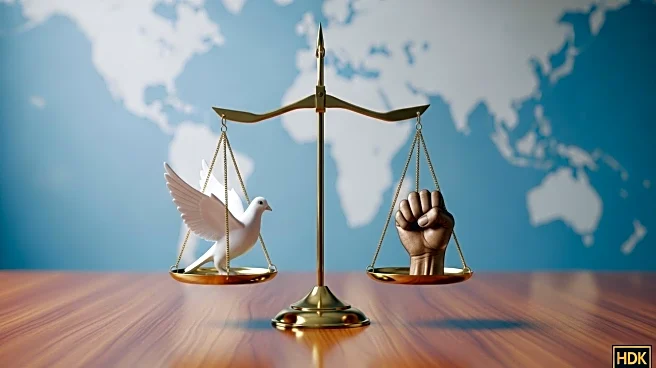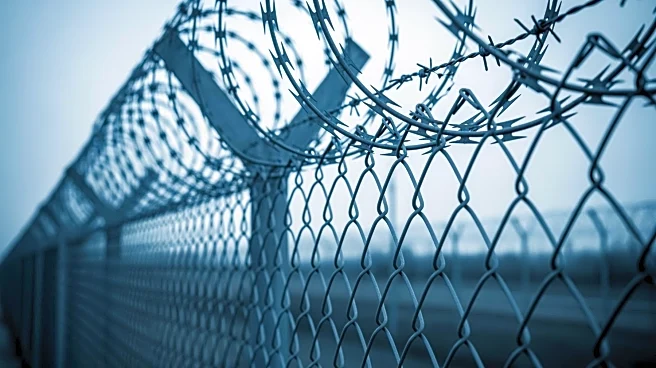What's Happening?
Javed Ali, a former senior director for counterterrorism at the National Security Council, has provided insights into President Trump's proposed peace plan aimed at resolving the ongoing conflict between Israel and Hamas in Gaza. The plan, which has been a subject of international attention, seeks to establish a framework for peace in a region that has been marred by violence and political instability. Ali's evaluation of the plan highlights the complexities involved in achieving lasting peace in the Middle East, considering the historical tensions and the strategic interests of various stakeholders involved.
Why It's Important?
The proposed peace deal by President Trump is significant as it attempts to address one of the most enduring conflicts in the Middle East. The implications of this plan are far-reaching, potentially affecting U.S. foreign policy, regional stability, and international relations. Success in brokering peace could enhance the U.S.'s diplomatic standing and influence in the region, while failure could exacerbate tensions and lead to further instability. The plan's reception by both Israeli and Palestinian leaders, as well as other international actors, will be crucial in determining its viability and effectiveness.
What's Next?
The next steps involve diplomatic negotiations and discussions among key stakeholders, including Israeli and Palestinian representatives, as well as international mediators. The response from these parties will be critical in shaping the future of the peace process. Additionally, the plan may face scrutiny from political leaders and civil society groups, who will assess its potential impact on human rights and regional security. Monitoring these developments will be essential to understanding the trajectory of the peace efforts.
Beyond the Headlines
Beyond the immediate political implications, the proposed peace deal could have long-term effects on cultural and social dynamics in the region. It may influence public opinion and societal attitudes towards reconciliation and coexistence. Furthermore, the ethical considerations surrounding the plan, such as the treatment of displaced populations and the preservation of cultural heritage, will be important factors in its implementation.









